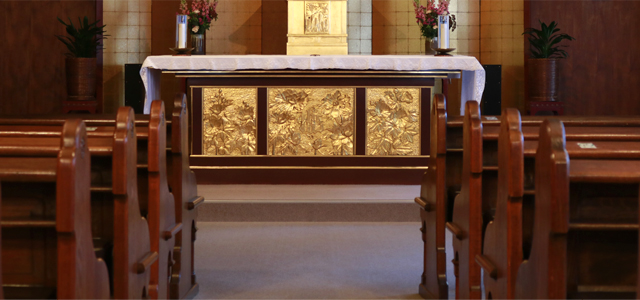
Catholic Q&A
Even now on recalling my sins of the past, my heart feels dark. Every time I think about my ugliness, I fall into self-loathing. Will forgiveness be granted to a person like me?
Throughout his life Jesus was a friend of sinners. It is said that he often ate with tax collectors and sinners. In Jewish society of that time, eating together was a sign of close fellowship, and it meant even a sharing of fate. In doing so, Jesus desired to speak for the heart of God the Father, who invites the poor to fellowship in his life.
Jesus, who foresaw his death, ate a farewell meal with his disciples. It was a prelude to the feast in the kingdom of God, to the fellowship of the children of God. Jesus sought to lay the foundations for it, by offering his own life. That is the reason why the disciples who experienced the death and resurrection of Jesus gathered together and had a commemorative meal for the Lord, in obedience to his word. The Church gradually acquired shape through this ritual meal or “Mass.” Holy Mass still continues to be celebrated in churches the world over, but there are certain words of the Lord that frequently recur within it, namely, “This is the chalice of my blood, the blood of the new and eternal covenant, which will be shed for you and for many for the forgiveness of sins.”
The God whom Jesus speaks of is by no means a deity sitting at the heights of heaven and checking our actions, rewarding those who have performed good deeds and judging those who have done evil deeds. As Jesus declared in the parable of the Prodigal Son (please see Luke, Chapter 15), God desires that sinners return to him, and he eagerly awaits their return.
Sin is certainly something that destroys the original form of human beings that was created by God, in order to share in his life. Human beings become unhappy as a result of it. Just as a little poison paralyzes the entire body, sin suffocates the lives of the children of God, ensnares people in darkness, and deprives them of joy. Yet, God the Father is not just an impassive spectator with regard to these unhappy human beings, who have grown estranged from him. God feels saddened by human misery, and more than anything else he desires that human beings return to him, and Christian faith teaches that God generously permitted the death of his beloved child as well, in order to save us (see Romans 8: 31-39). It would be incorrect on our part to think of seeking reconciliation with God, because he is angry over our sins. Rather, it is God himself who desires reconciliation, and offers to reconcile with us (see 2 Corinthians 5: 16-21). God desires that we abandon our egoism and open our hearts to his grace, and thereby enter a new life.
Self-hatred is not really humility, since it arises from a hidden arrogance and egoism. In other words, it would be like placing ourselves in the center of the world and insisting on having things done in a particular way, just because we ourselves desire it to be so. You cannot tolerate the fact that the reality around you differs from what you want it to be. However, if instead of gazing at yourself you were to look upon God, that sort of self-loathing will disappear. This is because no one knows about our repulsiveness better than God himself, but he accepts us as we are, without judging us. He even offered his own child in order to save repulsive people like ourselves. If we truly awaken to that truth, we will find ourselves taking pride in our misery and repulsiveness.
